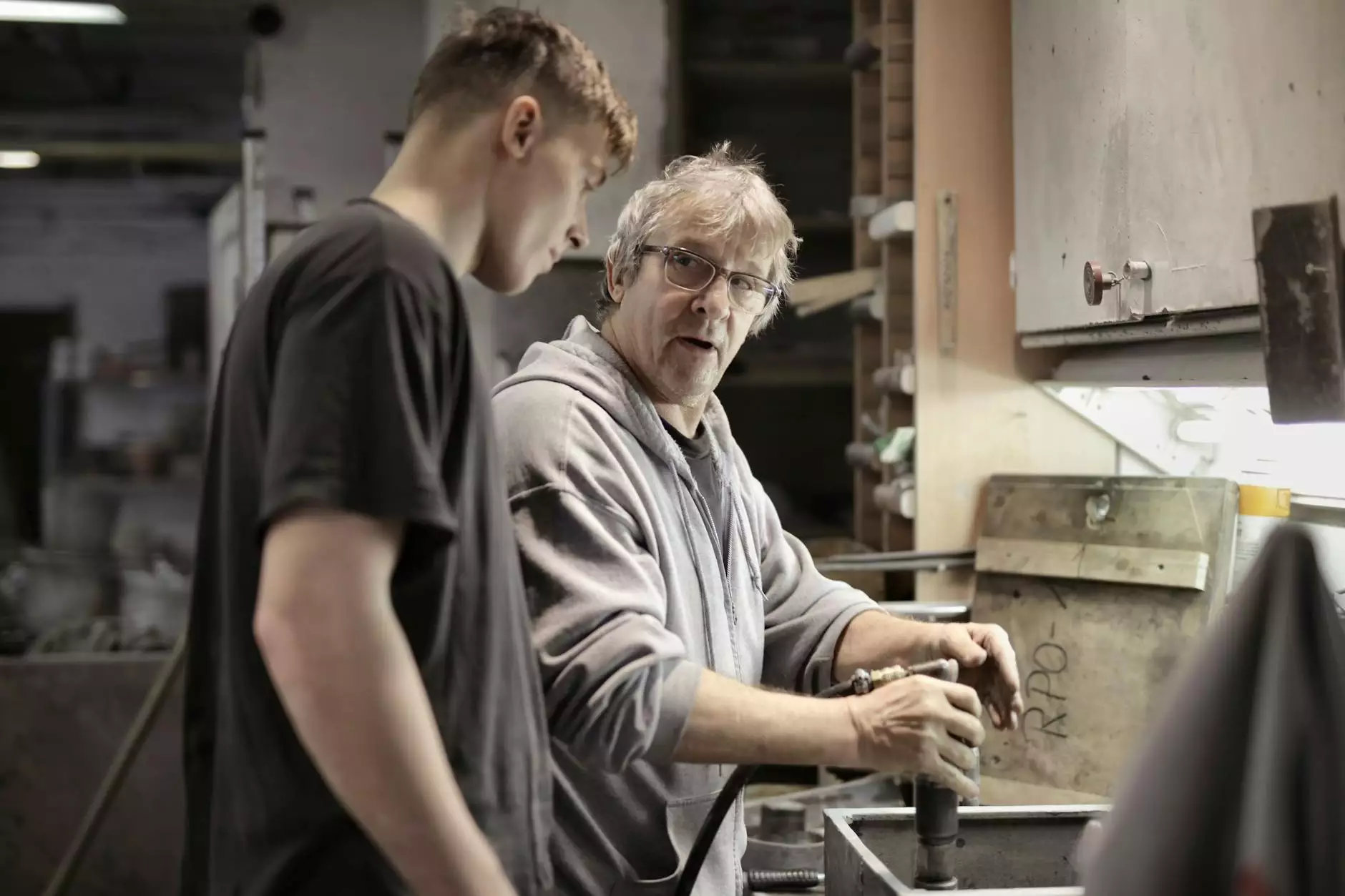The Future of Car Parts Manufacturing: Innovations, Challenges, and Opportunities

The automotive industry is constantly evolving, and at the heart of this transformation are the car parts manufacturers. These companies play a vital role in the production and supply of various components that ensure vehicles operate smoothly and efficiently. In this comprehensive article, we will delve deep into the world of car parts manufacturing, exploring its importance, the technological advancements that are reshaping the sector, the challenges faced by manufacturers, and the future prospects of this dynamic industry.
Understanding Car Parts Manufacturing
At its core, car parts manufacturing involves designing, developing, and producing components that make up vehicles. From engines and transmissions to brakes and electrical systems, each part is crucial for the performance, safety, and reliability of a car. With the global automotive market expanding rapidly, the demand for high-quality automotive components continues to rise.
Key Players in the Automotive Parts Industry
Car parts manufacturers include a wide range of entities, from large multinational corporations to smaller, specialized companies. Some of the major players include:
- Bosch – Renowned for its innovative technology in automotive parts and systems.
- Continental AG – A leading manufacturer of tires and other automotive components.
- Denso Corporation – Specializes in advanced electronics and thermal systems for vehicles.
- Magna International – A global automotive supplier focusing on a range of components and systems.
- ZF Friedrichshafen AG – Known for its driveline and chassis technology.
The Importance of Quality in Car Parts Manufacturing
Quality is paramount in the automotive industry, where safety and reliability are non-negotiable. Car parts manufacturers must adhere to strict quality standards and regulations to ensure their products meet the necessary performance criteria. This not only involves rigorous testing and certification but also embracing best practices throughout their manufacturing processes.
Standards and Certifications
To maintain quality, manufacturers seek certifications such as:
- IATF 16949 – A quality management standard for the automotive sector.
- ISO 9001 – A global standard for quality management systems.
- SAE International standards – Sets rigorous performance criteria for automotive components.
Innovations Shaping the Future of Car Parts Manufacturing
The automotive industry is witnessing a surge of innovations that are changing how car parts are designed, manufactured, and supplied. Let's explore some of the most significant advancements:
1. 3D Printing
3D printing technology is revolutionizing car parts manufacturing by allowing for rapid prototyping and customized production. Manufacturers can create complex geometries that were previously impossible with traditional manufacturing methods. This not only reduces lead times but also minimizes waste, leading to more sustainable practices.
2. Automation and Robotics
The introduction of automation and robotic systems in manufacturing processes enhances efficiency and precision. Robots can perform repetitive tasks with high accuracy, reducing the likelihood of human error and increasing productivity. As labor costs rise and technology advances, more manufacturers are adopting these systems to stay competitive.
3. Internet of Things (IoT)
The Internet of Things is connecting machinery, equipment, and supply chains, allowing for better monitoring and management. IoT devices enable manufacturers to gather real-time data on production processes, which can be analyzed to optimize operations and improve product quality.
4. Advanced Materials
New materials, such as lightweight composites and advanced alloys, are emerging in response to the need for better performance and fuel efficiency. These materials not only enhance the strength and durability of components but also contribute to reducing overall vehicle weight, which is crucial for meeting environmental regulations.
Challenges Facing Car Parts Manufacturers
While the future looks bright, car parts manufacturers face several challenges that must be addressed to thrive in an increasingly competitive market:
1. Supply Chain Disruptions
Global events, such as the COVID-19 pandemic, have exposed vulnerabilities in supply chains. Manufacturers must adapt by diversifying their supplier networks and investing in local production capabilities to mitigate risks.
2. Regulatory Compliance
Keeping up with changing regulations regarding emissions, safety standards, and material sourcing can be daunting. Manufacturers must stay informed and be proactive in adapting to these changes to avoid penalties and ensure their products meet market expectations.
3. Environmental Sustainability
The push for more sustainable manufacturing practices is stronger than ever. Car parts manufacturers are challenged to reduce their environmental footprint by implementing eco-friendly processes and sourcing materials responsibly. This includes optimizing resource use and enabling recycling initiatives.
4. Skilled Labor Shortage
The shift towards automation and advanced technologies requires a skilled workforce that is proficient in modern manufacturing techniques. Manufacturers must invest in training and education programs to develop the necessary talent pool.
The Future Outlook for Car Parts Manufacturers
The future of car parts manufacturers is expected to be shaped by several key trends:
1. Electric Vehicles (EVs)
As the automotive industry shifts towards electric propulsion, manufacturers will need to adapt their offerings to support this transition. This includes producing components for electric drivetrains, battery systems, and other EV-specific technologies.
2. Connected Vehicles
The rise of connected vehicles presents opportunities for manufacturers to develop smart components that enhance vehicle performance and provide real-time data to drivers. This integration will require collaboration between traditional parts manufacturers and tech companies.
3. Emphasis on Safety Features
With an increasing focus on vehicle safety, manufacturers are expected to innovate in areas such as advanced driver-assistance systems (ADAS) and collision avoidance technologies. The demand for high-quality, reliable components will remain a cornerstone of this trend.
4. Globalization and Localization
Manufacturers will need to balance globalization with localization strategies. While global supply chains offer cost efficiencies, the importance of local manufacturing to enhance supply chain resilience is becoming evident. A hybrid approach may be the way forward.
Conclusion
In conclusion, the future of car parts manufacturers is filled with potential. By embracing innovation, focusing on quality, and navigating the challenges posed by a rapidly changing environment, these manufacturers can position themselves for success. As we move further into the 21st century, the automotive industry will continue to evolve, reshaping how we think about transportation and the components that make it possible.
By investing in technology and adopting sustainable practices, car parts manufacturers not only meet the current demands of the market but also pave the way for a compelling and dynamic future.









